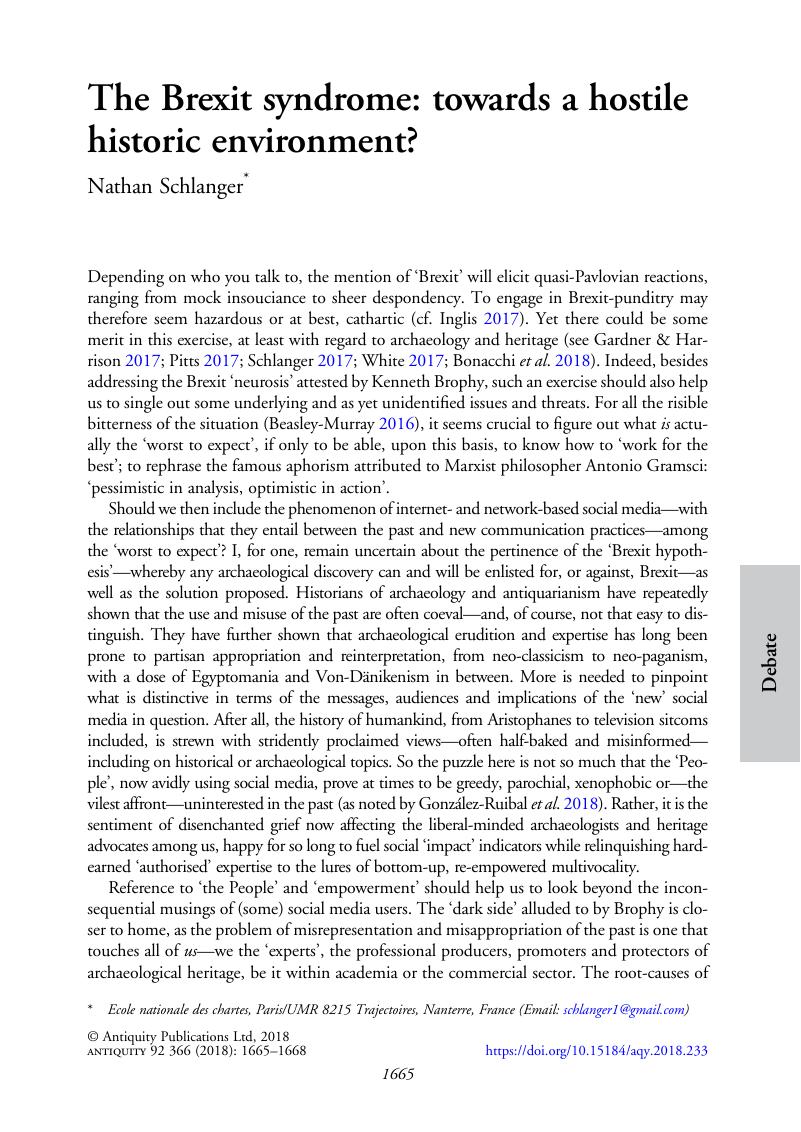Crossref Citations
This article has been cited by the following publications. This list is generated based on data provided by Crossref.
Brophy, Kenneth
2018.
Countering the Brexit hypothesis through solidarity, advocacy and activism.
Antiquity,
Vol. 92,
Issue. 366,
p.
1669.
Hofmann, Daniela
Hanscam, Emily
Furholt, Martin
Bača, Martin
Reiter, Samantha S.
Vanzetti, Alessandro
Kotsakis, Kostas
Petersson, Håkan
Niklasson, Elisabeth
Hølleland, Herdis
and
Frieman, Catherine J.
2021.
Forum: Populism, Identity Politics, and the Archaeology of Europe.
European Journal of Archaeology,
Vol. 24,
Issue. 4,
p.
519.





